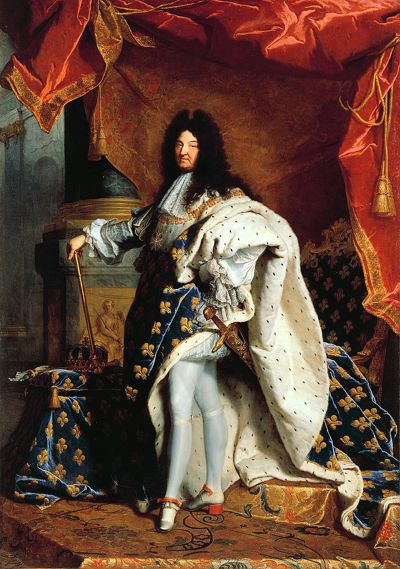
Inspired by a true story, this refugee’s tale of sacrifice, separation, and abiding love unfolds in the Cévennes Mountains of Languedoc, France, 1697. A sweeping adventure during the time of Louis XIV’s oppressive rule and persecutions, this compelling narrative follows the intertwined destinies of two remarkable protagonists, Amelia Auvrey, a mystic holy-woman healer, and Jehan BonDurant, an apothecary from a noble Huguenot family, in a riveting tale of enduring love, faith, and the search for light in the darkest of times.
Amelia and Jehan are fierce champions of tolerance and compassion in their cherished Cévenole homeland, a region plagued by renewed persecution of Huguenots. The escalated danger forces their paths to diverge, each embarking on their own dangerous journey toward survival and freedom. The Knights Hospitaller provide protection and refuge for Amelia and her ailing sage-femme grandmother, even as they come under suspicion of practicing witchcraft. And, to avoid entanglement in a brewing rebellion, Jehan joins a troupe of refugees who flee to the Swiss Cantons seeking sanctuary—a journey that challenges his faith and perseverance. Jehan arrives to find things are not as he expected; the Swiss have their own form of intolerance, and soon immigrants are no longer welcome. The utopian Eden he seeks remains elusive until he learns of a resettlement project in the New World.
During their time apart, Amelia and Jehan rely on a network of booksellers to smuggle secret letters to each other—until the letters mysteriously cease, casting doubt on their future together. Jehan is unclear if Amelia will commit to joining him, or if she will hold fast to her vow of celibacy and remain in the Cévennes. Seemingly ill-fated from the start, their love is tested to its limits as they are forced to navigate a world where uncertainty and fear threaten to eclipse their unwavering bond.
As a stand-alone sequel to the award-winning The Muse of Freedom, a bestseller in Renaissance Fiction, Find Me in the Stars is based on true events in the life of Jean Pierre Bondurant dit Cougoussac–an unforgettable adventure where love and light endure against all odds.

Louis XIV’s suppression of Protestantism
The momentous exodus of French Protestants seeking refuge from persecution played a vital role in shaping European history. The diaspora reached its height during the second half of the 17th century under the reign of King Louis XIV when the Protestants had become known as “Huguenots.” (There are many theories on the origin and meaning behind the name, but that is an entire article in itself).
My new book, Find Me in the Stars: a Cevenoles Sagas novel, is “a Huguenot refugee’s tale of sacrifice, separation, and abiding love” that begins as my protagonist, Jehan BonDurant, makes his way out of France to the “refuge” countries—a dangerous journey since Louis XIV had instituted an edict making emigration by Protestants illegal. Like many others, Jehan made the choice to leave France since staying meant restrictions, seizure of property and children, or even violent persecutions ending in arrest or death.
Through the centuries, scholars have asked—why would the king forbid the emigration of a group of people he did not tolerate? Why would he want citizens he viewed as dangerous heretics to stay?
Louis’s true attitude in this situation around the Huguenots is not entirely clear. He was a staunch Catholic and believed in the concept of “one king, one law, one faith.” Certainly, his policy was in keeping with his authoritarian insistence upon unity. He viewed religious unity as crucial for political stability, and his actions were consistent with the increasingly orthodox and rigid mood of his last years.
This was quite a departure from the policy of Louis’ grandfather, Henry IV, who was raised Protestant but was forced to convert to Catholicism to ascend to the throne. He issued the Edict of Nantes in 1598, which granted substantial religious and civil liberties to French Protestants, including the right to worship freely and emigrate if they desired. For a short time, it looked as if religious harmony could work. Nevertheless, there was still a division among the population of France. The Edict had been accepted only begrudgingly by some, and the Church of Rome had never approved the toleration it guaranteed.
Henry IV’s assassination triggered further Huguenot rebellions that continued under Louis XIII’s reign until the Peace of Alais in 1629. At that point, the Huguenots ceased to be much of a problem for the French government. They had a significant role in the economic and industrial development of the nation, and there were no indications of their disloyalty. Their only offense at the time was that the Catholic dominions considered them to be heretical.

How Louis XIV came to share the view that Protestants were a threat is still a question. Although the Huguenots had been industrious and obedient subjects since 1629, the memory of their earlier misconduct remained fresh. Early on in his reign, Louis wrote in his memoirs that he hoped, in the long term, that this heresy (the Reformed Protestant faith) could be eliminated. Yet he stressed that this must be achieved by gentle persuasion and that the rights previously granted to this minority must be respected.
But only eight years into his reign, in 1669, Louis (or his ministers with his consent) issued a succession of decrees removing privileges found in the toleration edict. One of the key measures implemented during this period was the decree that prohibited Huguenots from leaving France. This measure was aimed at preventing the emigration of Protestant artisans, merchants, and professionals who possessed valuable skills. Louis feared their departure would weaken the French economy and undermine his attempts to centralize authority. Refugees would face arrest and confiscation of property if they were captured, and anyone caught assisting a Huguenot emigrant would be condemned to the galleys for life.
Louis XIV’s suppression of Protestantism took a major step forward with the revocation of the Edict of Nantes in 1685 through the Edict of Fontainebleau. This revocation marked a drastic shift, making the practice of Protestantism entirely illegal. While it did not immediately prompt significant renewed religious warfare, there were still skirmishes, and it caused many more Protestants to risk leaving France rather than convert.
Roger Mettam, in his article Louis XIV and the Huguenots, suggests some possibilities behind Louis’s motivation to restrict and persecute the Protestants. “Kings are always at the mercy of their advisers, and perhaps it is they who should be blamed, either for misleading their sovereign or for being themselves misled about the number of converts. Madame de Maintenon, that most pious of royal mistresses, has also been suspected of influencing the King, as have his confessor and the other Jesuits. Some writers have singled out the war minister, Louvois, suggesting that he was reluctant to disband the army which he had assembled with such difficulty for the recent Dutch War of 1672-9 and saw a policy of forced conversion during “dragonnades” as a way of employing the troops in peacetime. Many have noted that the Revocation came two years after the death of Colbert – the minister who had most valued the Protestants, both French and foreign, for their contribution to his plans for economic revival and expansion. Or was it a gesture by Louis XIV to appease the Pope, who had been increasingly irritated by the aggressively Gallican approach of the King to his relations with the Holy See, and might be somewhat mollified by a crusade against heresy?” Perhaps Encyclopedia Britannica has the answer when it states that, in all his dealings, “Louis revealed a desire to exercise a paternal control of affairs that might suggest a modern dictator rather than a 17th-century king.”
It appears evident that Louis considered the persistence of Protestantism to be a disgraceful indication of the monarchy’s lack of control. He spent years trying to curb the spirit of independence wherever he spotted it. The decision to curtail the Huguenots’ mobility served as a testament to his unwavering commitment to religious uniformity and absolute monarchy, disregarding the potential negative impacts on individual liberties and economic prosperity.
The dragonnades became widespread in southern France beginning in 1685. As a consequence, a considerable number of Protestants either converted or escaped to other countries despite the ban imposed by the monarchy. Over the next sixteen years, enclaves of stubborn Huguenots endured in the Cevennes and, along with others who had converted, sought retribution in 1701 in what became known as the Camisard War. My Cevenoles Sagas novels, The Muse of Freedom and Find Me in the Stars, are set in the Cevennes during this divisive and dangerous time and follow the intertwined fates of two remarkable protagonists as they each forge their destinies in a quest for a brighter tomorrow.
This title will be available on #KindleUnlimited.
Universal Buy Link: https://books2read.com/u/31B6PM
Meet Jules Larimore

Jules Larimore is the author of emotive, literary-leaning historical fiction with a dose of magic, myth, and romance to bring to life hopeful human stories and inspire positive change. She is a member of France’s Splendid Centuries authors’ collaborative, a board member of the Historical Novel Society of Southern California, and lives primarily in Ojai with time spent around the U.S. and Europe gathering a rich repository of historical research in a continued search for authenticity.
Connect with Jules
Website: https://juleslarimore.com/
Twitter: https://twitter.com/jules_larimore
Facebook: https://www.facebook.com/juleslarimore/
LinkedIn: https://www.linkedin.com/in/juleslarimore/
Instagram: https://www.instagram.com/juleslarimore/
Threads: https://www.threads.net/@juleslarimore
Pinterest: https://www.pinterest.com/juleslarimore/
Book Bub: https://www.bookbub.com/profile/70036407
Amazon Author Page: https://www.amazon.com/stores/Jules-Larimore/author/B0BBC13BR7
Goodreads: https://www.goodreads.com/book/show/205843160-find-me-in-the-stars
